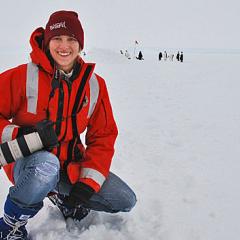Brooks calls for protection of the Southern Ocean ecosystem
Cassandra Brooks is part of an international group of scientists calling for protective limits on fishing in Antarctica’s Southern Ocean. Their paper in the journal Science reports that current levels of fishing, combined with climate change, are taking a concerning toll on a diverse ecosystem of global significance.
“We cannot ignore the increasing evidence of the ecosystem impacts of fishing in its current form and the dire threat posed by climate change,” Brooks told CU Boulder Today. “Given the immense global value of the Southern Ocean, we must urgently implement tools toward more sophisticated spatial management and consider the full suite of values, and trade-offs, in continuing fishing in its current form.”
Abstract: The Southern Ocean, which comprises ∼10% of the global ocean, is critically important to the homeostasis of the Earth system, exhibits distinctive marine biodiversity, and has tremendous scientific, diplomatic, and wilderness value. Yet, the region and its suite of global values are critically threatened by climate change, which is exacerbated by commercial fishing, an activity that provides value for relatively few industrial actors and compromises the greater values that the Southern Ocean ecosystem provides to the world.The Commission for the Conservation of Antarctic Marine Living Resources (CCAMLR), the arm of the Antarctic Treaty System responsible for managing Southern Ocean marine living resources, meets in October–November 2022 and is under pressure to strengthen fisheries management, especially toward climate change resilience. We encourage improved management practices that account for the environmental externalities arising from trade-offs between fishing and the global contribution of the Southern Ocean ecosystem, including under a changing climate.
Learn more in the CU Boulder Today story and read the full article in Science.
